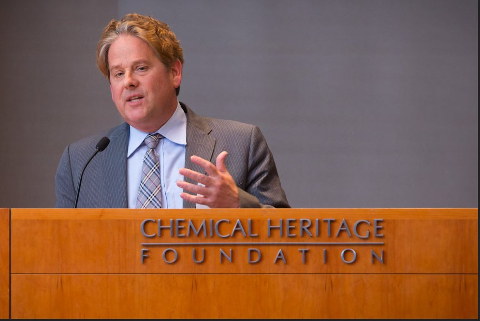

Another death of software patents (in the US) was recently reported, but not much media attention has been paid to it. That's pretty much what we expect when the media is controlled or steered by particular interests. It should be noted that software patents are dying in bulk in the US and the 'mess' this creates (more requests for invalidation) clogs up the system. As Law 360 put it the other day:
Three federal judges from California and Delaware speaking Tuesday at a symposium to honor retiring U.S. District Judge Ronald Whyte criticized the U.S. Supreme Court’s Alice ruling, saying it has spurred hundreds of patent invalidity motions in their districts, and its two-part test for analyzing patent validity is too subjective.
"Don't think that lobbyists and think tanks of large corporations will just stay idle and watch this without a reaction."What's worth emphasising, verbatim from the above, is: "hundreds of patent invalidity motions in their districts" (good news!)
Don't think that lobbyists and think tanks of large corporations will just stay idle and watch this without a reaction. Watch how in the David Kappos years patent quality in the USPTO sank to gutter level (we wrote about this many times before). This new chart speaks for itself. "In the end," remarks the author, "the Patent Office was able to ramp-up production enough to end FY2016 with the most utility patents issued in any fiscal year in history – 304,500 utility patents!"
What they mean by "production" is what Battistelli means by production. It's a distortion of the whole patent system for the sake of short-term profit gains. Battistelli basically repeats the mistakes of Kappos, who is nowadays a paid lobbyist for software patents. "In Europe" according to IAM, "they have not degraded patents like in the US, says Kappos #LESAM16"
Actually, they are now. Battistelli fancies himself another Kappos. As Benjamin Henrion said in response, "he means corrupt and malicious EPO still grants software patents?"
Well, it has certainly gotten there. Insiders told us this too.
"Don't let the USPTO decide on patent scope."So while the US moves away from software patents, having ejected this disaster who was David Kappos, Europe under Battistelli turns patent examination into a production line with minimal quality control -- the very thing that the US Government Accountability Office recently warned about.
According to this very recent post, Kappos took his lobbying to AIPLA and "Director Lee is likely nearing the end of her term as USPTO Director." Here is the part which mentions Kappos: "USPTO Director Michelle Lee offered a set of Remarks at the October 28, 2016 AIPLA Luncheon. As a presidential appointee, Director Lee is likely nearing the end of her term as USPTO Director. Although the likely election of fellow Democrat Hillary Clinton suggests a smooth transition that could extend her term beyond January 2017, I expect that she will step-down prior to that point and that Deputy Director Russ Slifer will step-up as Acting Director."
According to this post from IAM, the USPTO improves patent quality somewhat (Mayo/Alice) and associated fees go up. A sign of improvement to come? Here is how Patently-O put it:
From the USPTO: The U.S. Department of Commerce’s United States Patent and Trademark Office (USPTO) today announced that as part of its effort to solicit input from the public regarding the legal contours of patent subject matter eligibility, it will be holding two roundtables, one in November and one in December.
“In recent years, the jurisprudence on the very basic issue of what is patent eligible subject matter has been evolving requiring adjustments by innovators, businesses, lower courts and administrative agencies such as the USPTO,” said Under Secretary of Commerce for Intellectual Property and Director of the United States Patent and Trademark Office Michelle K. Lee. “Our goal is to minimize any uncertainty in the patent system by ensuring we not only continue to apply the statute and case law in this area as faithfully as possible, but also understand the impact of the jurisprudence on innovation by assessing what, if any, changes might be helpful to further support innovation.”
In conclusion, after a long spell of bad news, Planet Blue—along with decisions like Bascom and Enfish—provides software innovators, applicants and owners with not only increased clarity, but also concrete evidence that the courts are working to address the challenges arising from the Alice test and that we're not headed for a software patent apocalypse (as some have claimed).
I, for one, remain optimistic that the courts and PTO are fully committed to a healthy patent system and will continue working to resolve the remaining issues around patent eligibility and to ensure that effective patent protection is available to innovations in software (and every other field of technology).